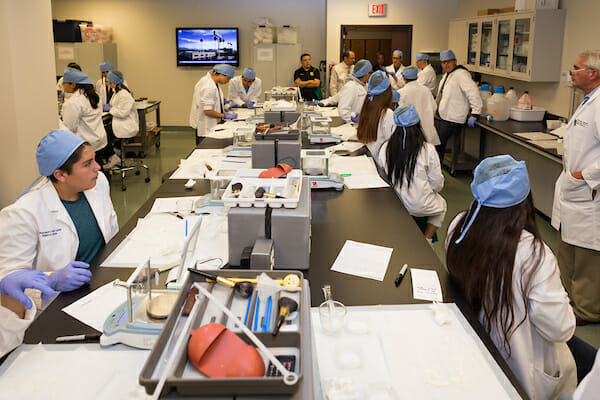
Areas of Focus
The following areas of focus represent most of our research areas, and also represent great areas of collaboration between our faculty and other researchers. As research is fluid and many projects overlap into multiple areas, many faculty have projects that span multiple areas of focus. Below you will find a short description of each field of study and the names of the faculty that conduct research in that field.
Cardiovascular diseases are the leading cause of death in the United States. The scope and etiology of these diseases are broad; yet, each component affects the cardiovascular system which includes the heart, blood, and blood vessels.
Diabetics do not produce enough, or any, insulin, which is required for glucose homeostasis, and metabolic syndrome is a constellation of diseases that includes diabetes or insulin resistance, hyperlipidemia, and hypertension. Members of this group either directly study diabetes and/or metabolic syndrome or a component of these diseases.
Health Outcomes is applied clinical research that generates knowledge to improve clinical decision-making and health care delivery to optimize patient outcomes. It is the study of the delivery and consequences of health care on outcomes from the perspective of patients, providers, and the health care system. Health Economics examines the costs within our health care system and can be used to determine how to cut costs.
Immunologists study the immune system in all aspects of disease; whereas, infectious disease studies the organisms that infect humans causing disease as well as how to combat such infections.
Neuroscience broadly covers faculty research projects that focus on the nervous system. Members of this group study psychiatry, pain, drugs of abuse, neurological diseases, and behavior.
Oncology is the study of cancer. This includes how cancers are formed, detecting cancer, as well as prevention and treatment of cancer.
Pharmacogenomics examines the effect of genetic variation (mutations or polymorphisms) on the pharmacokinetic and pharmacodynamic properties of drugs. As genome wide sequencing becomes more of a reality, this approach has great promise in advancing personalized medicine.
Pharmaceutics is a discipline specific to pharmacy that focuses on making and designing new drugs. Although many chemists design the active drug, pharmaceutics are involved with packaging the drug so that it is bioavailable and can treat the disease in question.
Translational research focuses on taking biomedical discoveries from the laboratory bench to the marketplace to improve human health. Translational research is not specific to any one field of biomedicine.

